Book Review: Blood Orange Night by Melissa Bond
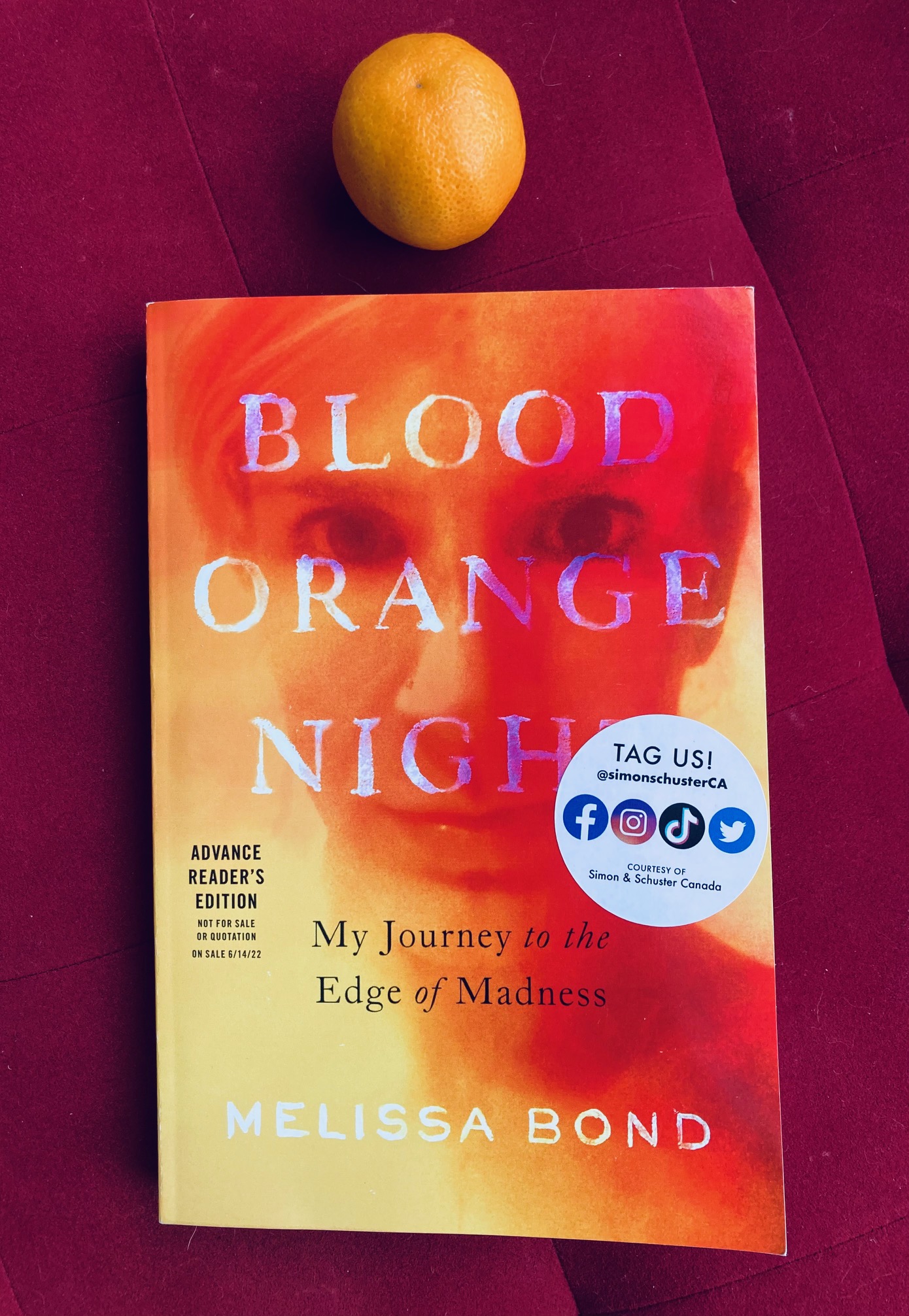
Addiction is a popular topic these days, with no shortage of narratives, both fiction and non-fiction, detailing the rise of highly addictive drugs. The opioid crisis is one that most of us are familiar with now, and if you live in an urban area like I do, you’re likely used to seeing people suffering on the streets from these drugs on a regular basis. Blood Orange Night, My Journey to the Edge of Madness by Melissa Bond is about a different but also highly addictive family of drugs: benzodiazepines. Otherwise known as ‘benzos’, they include Xanax, Valium, Klonopin, and Ativan, drugs that are found in many of our medicine cabinets. This memoir is not only a warning, it’s a cry of outrage; the fact that they are so readily prescribed without caution about their ability to change one’s brain chemistry is terrifying, and Bond’s story is a shocking look at how dangerous they can be when misused.
Book Summary
Melissa Bond is in the blissful state of early marriage when she discovers she’s pregnant only weeks after tying the knot. After the birth they’re surprised to learn their son Finch has Down syndrome, but they quickly shift and accept their new reality. Unfortunately, this is when Melissa’s insomnia also begins, and shortly after she returns to work, she also loses her job at a small magazine. With these big changes, her insomnia slowly grows worse and worse, and is faced with numerous doctors who shrug their shoulders, unable to help a nursing mother. Then she discovers she’s pregnant again, and her second child is born, a healthy girl named Chloe. Melissa’s insomnia worsens, and with a baby and a special needs toddler, sleep is something she desperately needs more of. She begins to spiral into depression, and her husband grows distant, resentful of her emotional state and the fact she isn’t able to work. Then comes ‘Dr. Amazing’ (a licensed practitioner who studies both eastern and western medicine) who gives Melissa a prescription for Ativan. It works for a few weeks to help her sleep, but it slowly loses its effectiveness, so he doubles her dose (!) and gives her prescription refills for a full year. Her insomnia returns, and she begins to experience strange symptoms; she has trouble focusing, reading, and falls alot. She decides to do some research on the internet and quickly discovers how dangerous Ativan is, most sites declaring people shouldn’t take the drug for longer than 4 weeks at a time.
My Thoughts
A very visceral book, there is lots of focus on physical symptoms, and even though I’ve never truly been sleep deprived, Bond’s descriptions of her state of mind are believable and frightening. Everything about this book is rooted in the physical; from the most detailed and descriptive c-section I’ve ever read about, to the way the floor feels as she clings to the carpet riding out a bout of pain, it’s surprising how many things external to Bond get the spotlight. Beauty however, is what seems to get her through this incredibly difficult period. She forces herself to find beauty in things outside of her body; the outdoors, the humming of her child, the sunlight that fills their playroom; although the thought of suicide does cross her mind, it’s quickly pushed away as she’s reminded of her children’s dependance on her.
It’s normal to read a summary about the spiral of descent into drug addiction and pick apart of the actions of the person to differentiate yourself from their path, likely many of you did this just by reading the book summary paragraph above. Did you think “oh I would have questioned a doubling of my prescription” or “I would have looked up Ativan on the internet before I ever took it”, or were you like me and decided this couple was short sighted for having two kids so close together (they assumed they couldn’t get pregnant because she was breastfeeding – a very prevalent myth!) It’s easy for us to dismiss another person’s story of addiction, telling ourselves that would never be us falling into that same trap, but the frequency of these memoirs and stories should give us pause. In the afterword, this is what the author points out – she reported Dr. Amazing and nothing ever came of it, he’s still practicing today. It took Melissa years to wean herself off these drugs because if you stop try cold turkey, or go to too fast, you can suffer seizures. The brain literally needs this drug to function after being on it for an extended period, which is why it can be dangerous when prescribed incorrectly. I’m the kind of person that generally trusts doctors, and I actively avoid doing my own googling when it comes to health stuff because I think it causes more anxiety than its worth, but stories like these make me rethink that strategy, the old saying ‘be your own advocate’ sounds more prudent these days.
Both content and form work well together in this memoir, and even though it can difficult to read about, it’s a worthwhile story to witness and absorb. Even if it’s not directly applicable to your own life, it offers a valuable lesson in empathy for the silent struggles of others.

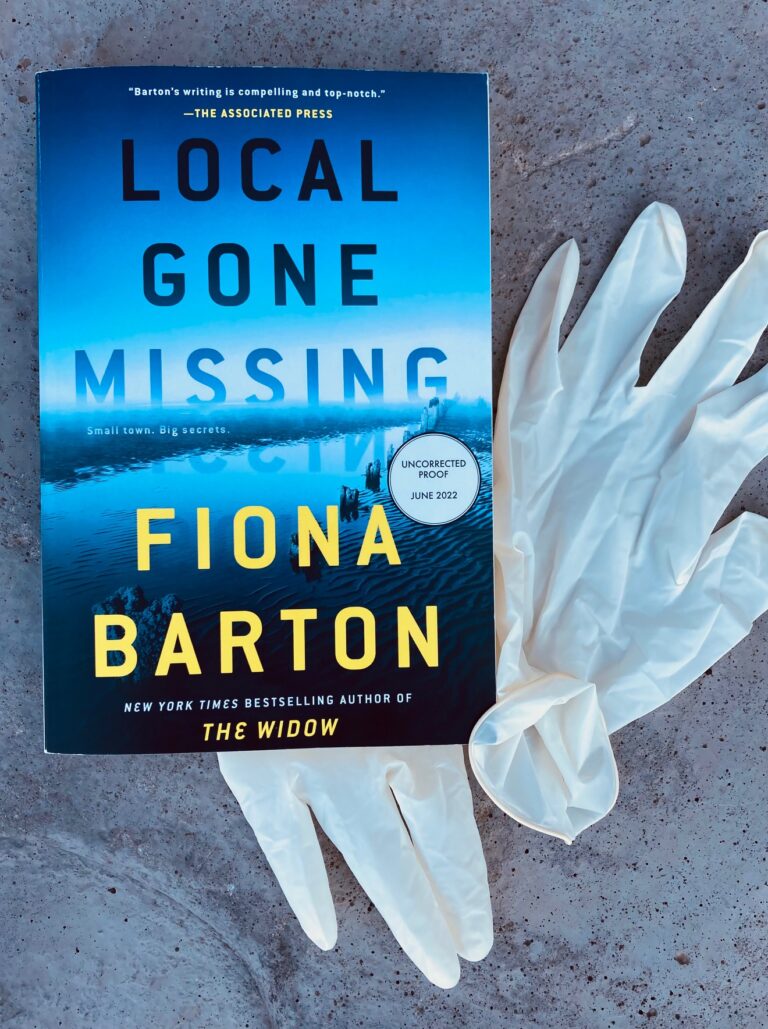

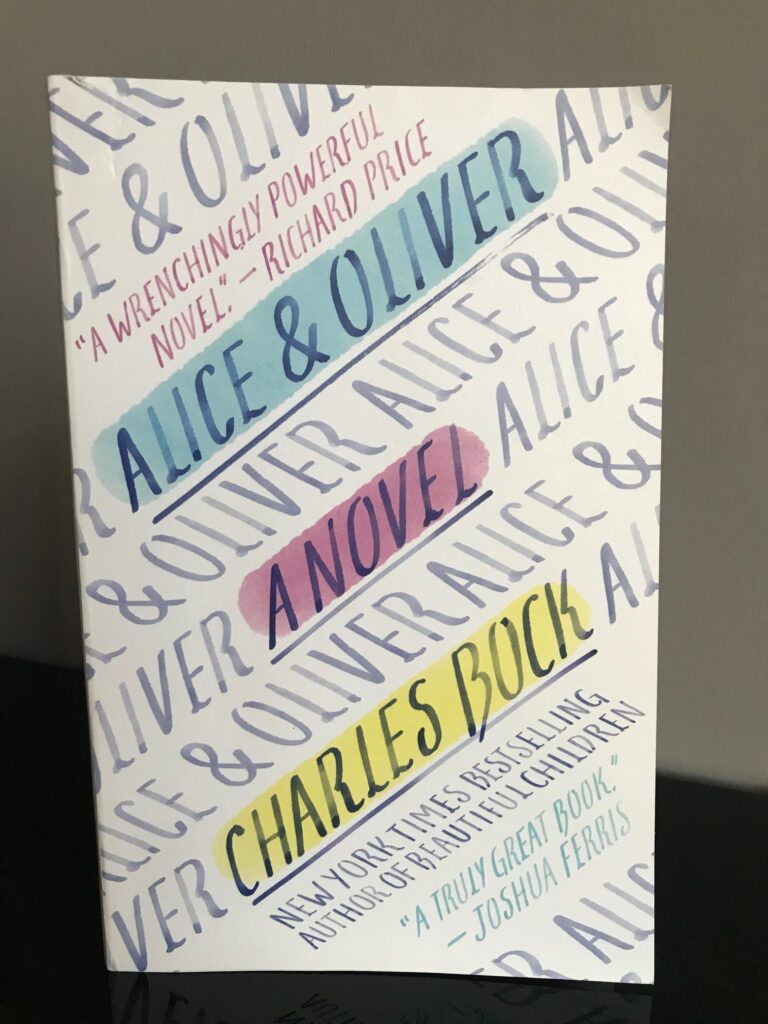
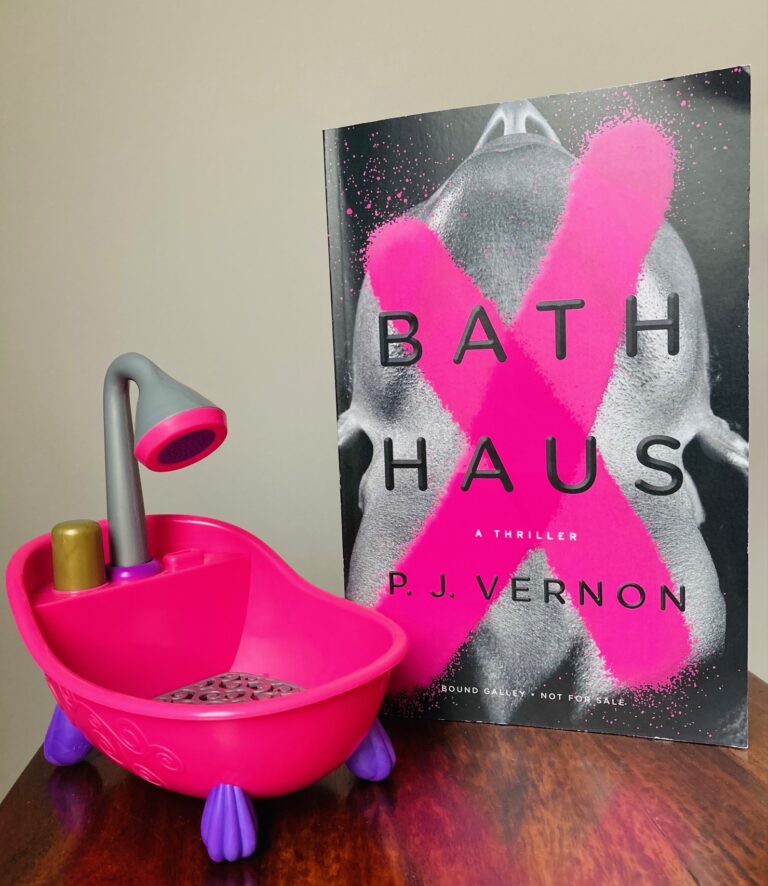
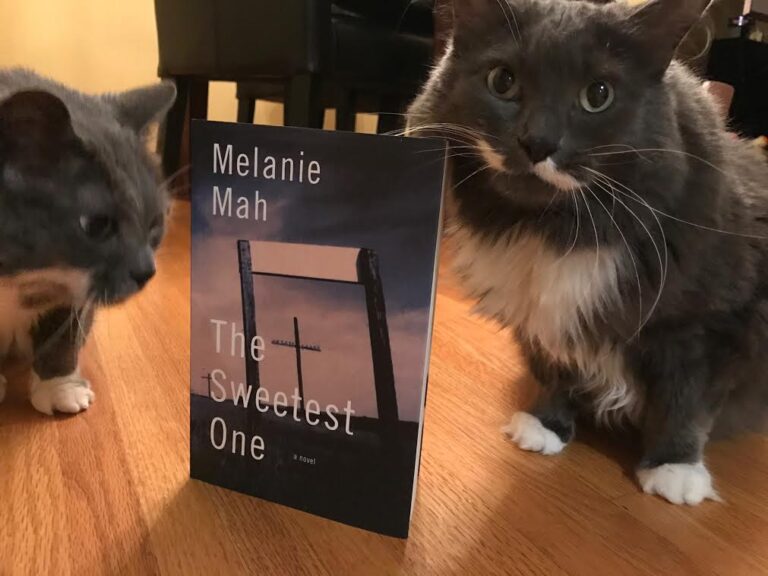
You’re right, I did pick her apart. I will never understand how a person is surprised they are pregnant. I will never understand the partner, after not having used birth control, is surprised (and sometimes mad) a pregnancy can happen.
It could be different in the U.S.A., but as soon as I got pregnant, doctors were warning me how easily I could pregnant right away again. It’s the first thing they talk to you about when you have the baby – birth control. And yet these myths still persist? I don’t know why.
Especially the one about breastfeeding as a natural form of birth control.
OH MY GOD this sounds like a nightmare. I hope she’s okay now?
Yes! She is, she seems much better. She does TED talks and speaks quite openly about this, so I think she’s much better now.
Prescription drug abuse has never been quite such a big issue over here because they’re very controlled by the NHS system. But sadly the black market still always seems to manage to provide supplies somehow, although street drugs like heroin are still a much bigger problem here. Somehow it seems worse when someone gets addicted to a drug that was initially prescribed by a doctor, though.
Oh that’s interesting FF, I’m glad to hear things are better over there. Canada isn’t as bad as the U.S. because of their health care system – our public health care system cuts down on some of this, whereas Americans are used to paying for things out of pocket which upsets the balance between dr and patient
Definitely a worthwhile story. I think we could all stand to take more responsibility for our health and well-being and stories like this remind us of the risks when we hand over that power to strangers.
So very true Marcie! I struggle with advocating for myself, but I’m getting better as I get older haha